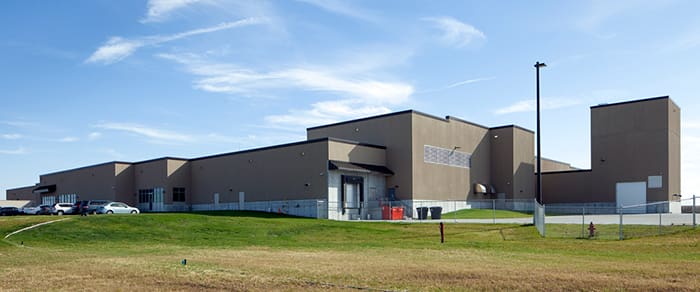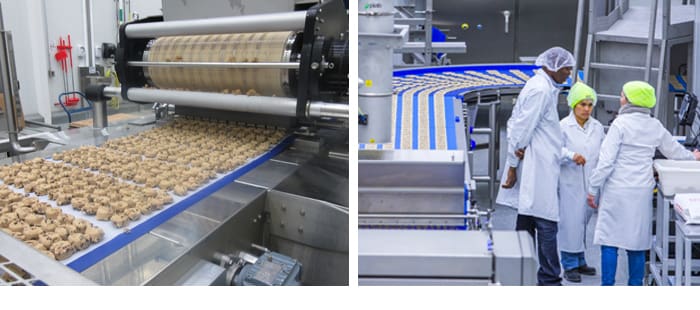Kirkland Signature
While a majority of our merchandise is branded, Costco’s line of exclusive private-label products called Kirkland Signature™ continues to grow and expand. Kirkland Signature has grown into a global brand with over $59 billion in sales in fiscal year 2021. In developing Kirkland Signature products, we have better control over the entire supply chain, including where the product comes from, environmental impacts, labor conditions and under what conditions it is produced.
About Kirkland Signature
Goals
Our goals for Kirkland Signature items are that they:
- provide our members with high-quality products at the lowest possible price;
- are respectful of the people or animals who produce them; and/or
- are respectful of the environment in the way they are produced, grown, harvested, processed, transported and packaged.
Our buyers work with our suppliers to continually improve our sourcing practices to enhance the quality and value of Kirkland Signature products, expand traceability, provide a fair return to people in the supply chain, and facilitate access to global or regional markets.
Traceability
Traceability is important for several key reasons. It enables Costco to know the quality and safety of the product; to examine issues related to environmental impacts; to list product origin information on the label; and to help people in the supply chain receive a fair return, so that the product can succeed in the long term.
Materiality Assessment
Costco worked with Verisk Maplecroft to provide an independent, comprehensive and data-led view of sustainability challenges across a broad range of agricultural raw materials, with a focus on our Kirkland Signature™ products. This review enables us to make evidence-led decisions to help prioritize sustainability strategy and risk mitigation efforts. Indices reviewed included:
- Environmental – GHG intensity, water stress, deforestation, climate change vulnerability, biodiversity and protected areas
- Social – child labor, forced labor, gender inequality, decent wages, modern slavery and indigenous people’s rights
- Governance – corruption and government stability
Fair Return
A fair return in the supply chain is important; for Costco to be successful, its suppliers must thrive. This commitment helps to ensure long-term supply and quality while also using market-based approaches to address poverty and malnutrition. Costco believes a fair return is more than the price paid for the item. It includes programs that (1) support producers (i.e., ranchers, farmers, growers/workers) and their communities through training for higher yields, quality and adaptation to climate change and extreme weather events; (2) pay premiums for high-quality products; and (3) improve access to health care, education, housing, clean water, and nutritious food for farmers/workers and their communities.
Continuous Improvement
We're working toward these goals one item at a time. Though there is still a ways to go in certain areas to meet these goals, we are also encouraged by stories of success in the Kirkland Signature items to date, some of which are highlighted on the Product Category pages.
VERTICAL INTEGRATION & IN-COUNTRY PRODUCTION
In order to secure long term-supply, ensure quality products, create efficiencies, and eliminate unnecessary costs, Costco has been exploring vertical integration and in-country processing of some key Kirkland Signature items, summarized below.

Poultry Production
In 2019, Costco began to transition some of its Kirkland Signature™Rotisserie Chicken and fresh chicken in the meat case to chicken produced in a new, vertically integrated facility located in Fremont, Nebraska – the chicken complex. It is owned by Costco and operated by Lincoln Premium Poultry (LPP), a Costco affiliate with poultry experience
Costco and LPP aim to create a vertically integrated chicken complex that:
- incorporates state-of-the-art equipment and design in its buildings
- provides significant economic benefit to the local community and farmers
- treats the chickens in accordance with the highest animal welfare standards
- is environmentally responsible, and
- provides our members with the highest quality product at the lowest possible price.
Processing Facility
The chicken complex is located on approximately 430 acres, and includes a feed mill, hatchery, processing plant and testing laboratory. The facilities are designed to conserve water, prevent runoff and treat the water before returning to the watershed. More information about water usage can be found on the Water Minimization page.
Facility Employees
The chicken complex employs approximately 1,100 people. Besides paying good wages and providing competitive benefits such as health care, 401(k) retirement opportunities, and paid vacation and sick leave, the plant will be subject to audits conducted by an independent third party auditor to ensure it is in compliance with the same Costco Supplier Code of Conduct that other Costco suppliers worldwide abide by. More information about our Supplier Code of Conduct can be found on our Human Rights page.
Local Farmers/Growers
The chicken complex relies on the support of more than 125 local farmers to grow the chickens required for the successful operation of the complex. Key features of this arrangement include:
- Growers receive a 15-year GIPSA contract (USDA Grain Inspection, Packers and Stockyards Administration), with a guaranteed base pay and the ability to earn a bonus. The state-of-the-art barns and equipment are built according to Costco/LPP specifications and are grower-owned and/or operated.
- LPP provides growers with the chicks, feed (see below), feed management plan, technical expertise and veterinary services.
- Grower contracts allow for peer review for grower improvement programs and to resolve disputes.
- Growers will be subject to strict animal welfare procedures audited by independent third party auditors, and biosecurity measures approved and monitored by the Nebraska Department of Agriculture. More information on Animal Welfare can be found on the Animal Welfare page.
Local Grain
The feed mill sources corn and soybeans from local farmers, which adds another economic benefit to the region surrounding the chicken complex. These grains are used to provide nutritious feed for the growers at no additional cost, as feed is included in the grower contracts.
For more information, here is a video from a local grower.

Canadian Commissary
In 2017, Costco began producing frozen baked goods to ship to our Canadian in-warehouse bakeries. In 2019, shipments expanded to the U.S and then in 2020 to Mexico. The 93,700-square-foot state-of-the-art facility features four production lines that produce only eight items for the greatest efficiency. Focusing on producing our high-volume items for Costco Bakeries, while controlling costs and maintaining the highest quality of ingredients, allows us to lower the cost to our members.
As a new production facility, the commissary has been able to achieve less than 3% waste from all lines. This waste is then shipped off-site and converted into animal feed, which reduces the waste leaving the facility to a minimum. Utilizing bulk ingredient delivery systems also keeps the packaging of plastic and cardboard to a minimum.
In-Country Production
In order to reduce ocean freight and transportation emissions, lower costs while retaining product quality, and increase the shelf life of food items, Costco is now exploring in-country production of some of its high volume Kirkland Signature™ items. Some examples include:
- Kirkland Signature Bath Tissue is now produced in nine regions
- Kirkland Signature Bottled Water is now produced in eight regions
- Kirkland Signature Roasted Cashews and Mixed Nuts are now produced in two regions
SOURCE FOOD WASTE REDUCTION
We continually search for opportunities to reduce food waste when producing Kirkland Signature™ items. Examples include:

Moving our egg packaging to a clear clamshell has reduced food waste by 9 million eggs annually, which diverts 1.2 million pounds of food from the waste stream every year. The clear packaging allows members full visibility of the product, prevents leakage from excess handling and keeps the egg from breaking while in transport from the egg producer. For more information, please visit the Packaging page.
Another example of source food waste reduction is Kirkland Signature Croissants, which are made in our Canadian Bakery Commissary and produced on lines that have less than 3% waste. This waste is shipped off-site and converted into animal feed.